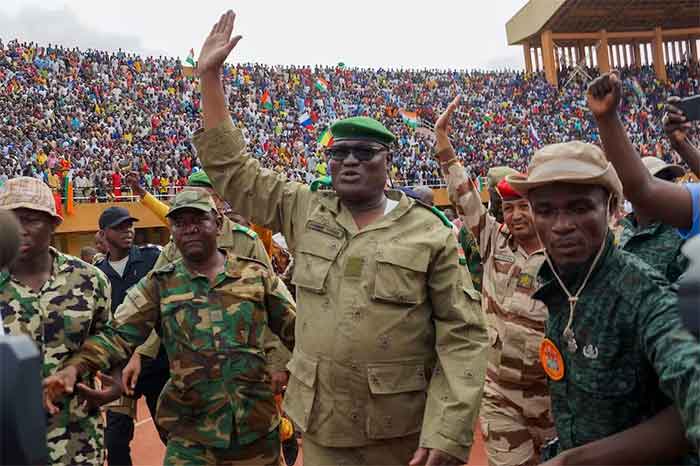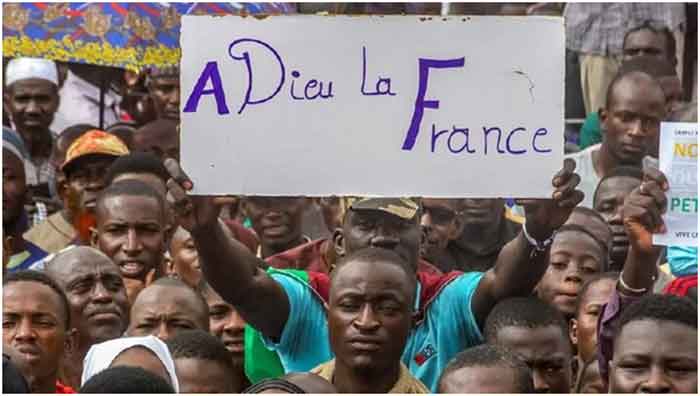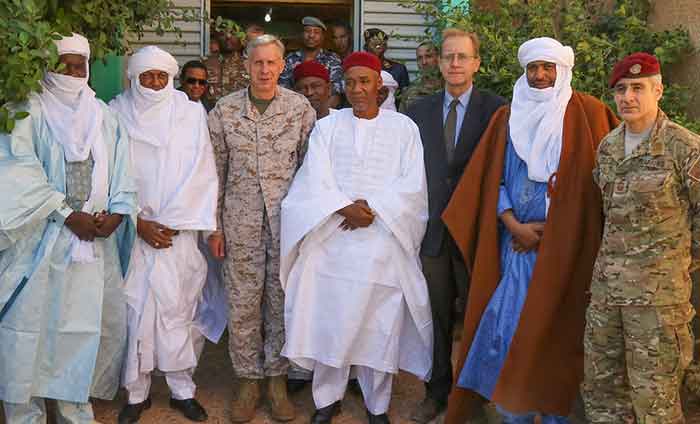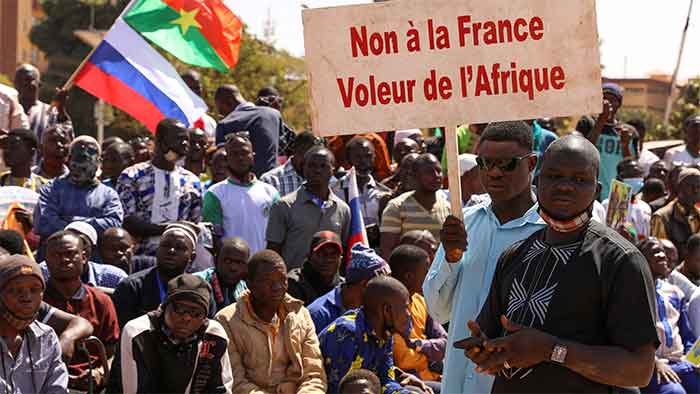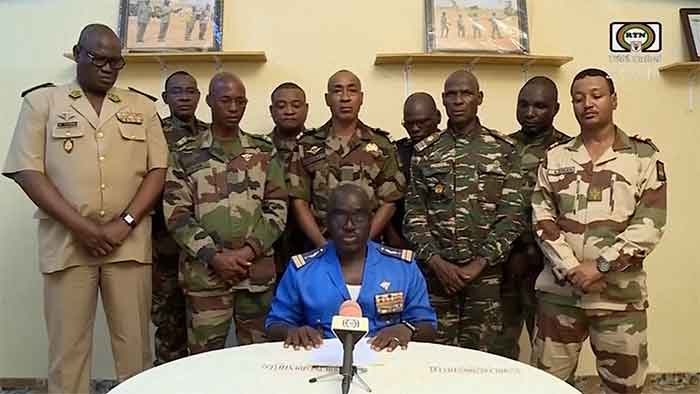
In the spirit of “every coup deserves a blog post”, here are some basics about the coup in Niger.
Caveats to start: I know a lot about coups, but I do not know a lot about Niger. What follows are from some readings I’ve been looking at, the most valuable being Rahmane Idrissa’s Historical Dictionary of Niger.
There are three threads that provide context for the Niger coup of July 26.
- Western – and French in particular – exploitation of the country which, for various French/Western reasons, is deepening and making people more miserable.
- Niger’s history of coups – and the recent regional coups in Burkina Faso and Mali.
- The roiling and seemingly unending conflict between “jihadi” groups like the Islamic State in the Sahel, etc., and the “French-led” regional counterinsurgency against these groups. (The scare quotes will be explained below).
Let us begin.
In the series on the Scramble for Africa, we covered France’s scramble for West Africa in episode 15. After overthrowing the West African states, France re-organized the territories for exploitation. The colonial currency regime (called the CFA Franc, which persists today in many of these countries) is a part of this system. The key references for this are Walter Rodney’s How Europe Underdeveloped Africa and the more recent Africa’s Last Colonial Currency by Pigaud and Samba Sylla. Imposing famines, huge colonial massacres, and the continual drain of resources were the order of the day.
Probably here we should mention the famous expedition of Voulet-Chanoine. These two French officers left from Senegal in November 1898 to try to conquer and unify West Africa under French colonial control. They had a number of troops and hundreds of enslaved porters. The stuff the Europeans needed to scramble for Africa was carried around for them by enslaved porters in chains – in a project all justified at the time in the name of abolishing slavery.
Anyway, back to Voulet-Chanoine. When they reached the Niger outpost, they committed a series of massacres, including one where the French made a big show of murdering children (Sansanne-Haoussa) and another where they murdered thousands of people at Birni-N’Konni. After a number of these massacres, Voulet-Chanoine’s fellow Frenchman Jean-Francois Klobb (a Lt. Colonel who gave Voulet, a captain, a direct order relieving him of command) caught the column and told the French troops to stop, so Voulet killed him too. That night, Voulet tore the galloons off his uniform and told his troops: “I am no longer a Frenchman, I am a Black chief. With you, I will found an empire.” A couple of days later the troops mutinied and killed both Voulet and Chanoine. The expedition continued on and killed more Africans and some of the French leaders went on to have successful military careers.
The French, like the other Europeans in Africa, also exerted control through periodic, murderous “punitive expeditions”.
Shortly after the French consolidated their position in what would become Niger, there was a famine – in 1902-3. And another in 1913. And another in 1920. And another in 1930. Perhaps you will say there were famines before colonialism, and there were. But France imposed qualitatively more hunger and famines than existed before. Walter Rodney cites a Brazilian study by Josue de Castro, which Rodney says “convincingly indicates that the African diet was previously more varied, being based on a more diversified agriculture than was possible under colonialism.” To ensure Africans worked for them, France would prevent them from gathering foods or having gardens and force them to pay taxes in francs. France’s plunder of Africa also included conscripting 164,000 African troops to fight for them in World War I — which caused, among other things, a race panic in Germany – a story for another day.
Uranium was discovered just before Independence in 1959 and its exploitation was organized by a French company. In its generosity, France allowed Niger 5%, then eventually 12%, of the royalties from the exploitation of this resource, which provides some 1/3 of France’s uranium and is 63% owned by French capital (and 37% by Niger).
Between French capital’s control of the country’s resources and infrastructure, neocolonized Niger continued to experience famine and food shortages in 1972-3. The IMF pressured the country to privatize 54 state companies in 1984; the credit union was privatized in 1985. At the end of 1989, the new government followed a World-Bank encouraged policy of drastic cuts to education funding, called Project Education III. Student protests followed with police killing several student protesters in 1990. In 1992, in desperate financial straits, the government got $50M in aid by recognizing Taiwan, which meant China broke diplomatic relations. In 1995, the government signed a structural adjustment package with the IMF, was overthrown in a coup in 1996, and the post-coup government also signed a structural adjustment package. In 1997, the World Bank demanded more public sector cuts, leading to more public sector strikes. In 1998, the IMF congratulated the government for its compliance with austerity, as public sector strikes shut the whole civil service down. In 2000, the prime minister asked deputies to forgo their entire salaries: “The coffers of the state are absolutely empty”, he said. The combination of drought and austerity policy led to a severe food shortage in 2004-5: The IMF took the occasion to force the government to raise taxes on milk, sugar, and corn flour. The government backed off of some of the taxes after a month long strike. Another food crisis followed in 2010-2011.
Colonialists always present their pillage as a gift to the colonized, but the reality is that the rich countries are generously funded by the poor, and France’s CFA Franc zone is a fountain of free resources for France. Having decided that France is going to join the US in its confrontation with Russia and China, it needs to squeeze the global south – and especially Africa – for the resources to do so. It’s a dangerous plan.
In the years leading up to Niger’s independence, the socialist leader who appeared positioned to take the country into the future was Djibo Bakary of the Mouvement Socialiste Africain, whose party came to be known as Sawaba. He was elected to lead the government in 1957, but he was overthrown and exiled by France in 1958, two years before independence happened. The next elections were rigged and the Sawaba party was disallowed. A Sawaba uprising happened in 1964 and was crushed – hundreds of Sawaba were imprisoned as political prisoners and in one incident, twenty one were suffocated to death at Maradi’s prison.
Besides being a socialist and pan-Africanist, Bakary’s crime was opposing de Gaulle’s idea for a Franco-African community. With Bakary out of the way, the post-Independence government joined the Franco-African community and signed an agreement allowing French troops to occupy Niger (a situation that persisted until the 1974 coup).
Reviewing the Historical Dictionary of Niger, I counted six coups: 1958, 1974, 1996, 1999, 2010, and now 2023. Several of these coups were by military officers who promised to hold elections quickly – and then did so! Other military governments stayed in power for a decade or more.
But the dynamics of a coup are never entirely local, as a perusal of William Blum’s book Killing Hope will show. Alternating between military and civilian governments, intervening in electoral processes where possible and resorting to military coup as needed, was the preferred method for keeping pro-US / pro-Western governments in power all over Africa for many decades after independence.
In recent decades, however, the US strategy has changed, to prefer dysfunctional civilian governments with low-level insurgencies that are then fought, but never defeated, by Western-led counterinsurgency efforts. This way, African militaries are always engaging in counterinsurgency under broad Western command against African populations. African resources still flow to the global north, with illicit flows taking a good share of the total. In endless war situations, land-grabs and resource-grabs are easier to hide (see, e.g. the US in Syria).
Which leads to our next section:
The governments of West Africa have been under French military control since independence. The US initially exerted its own interests through France, but in recent decades has exerted influence more directly, through AFRICOM, especially since the overthrow of Gaddafi in Libya in 2011. The Niger government signed agreements allowing the US to operate lethal drones in Niger, and declared its support early on for the rebels that would overthrow Gaddafi. There are a large number of Islamist insurgent groups operating in the countries of the region: both Al Qaeda-branded and Islamic State-branded groups murder civilians, attack police stations and military outposts, and kidnap people. The attacks can be severe. Luca Raineri, writing in the journal Terrorism and Political Violence, summarized a series of attacks in west Niger in 2019 alone:
in May, twenty-eight Nigerien soldiers were killed in an armed ambush by ISGS; in July, ISGS stormed a Nigerien military position near Inatès, killing eighteen soldiers; in October, five Nigerien gendarmes were also killed in an ambush by ISGS near Abarey; in November, ISGS attacked the Malian military base of Indelimane, just across the Nigerien border, killing fifty-three Malian soldiers; in December, ISGS mounted a large-scale attack against the military base of Inatès, which claimed the lives of seventy Nigerien militaries; and in January 2020, a new ISGS assault on a Nigerien military post in Chinegodar killed at least eighty-nine soldiers.
This is a little bit more than a state can be asked to simply “live with” or “manage”, when the prescription for dealing with this violence is another decade of Western-led operations that seem to lead nowhere. After the destruction of the Libyan state, the so-called “jihadi” insurgencies have targeted states of the region and the US/France have been completely ineffective. The African militaries that have been subordinated in these counter-terrorism efforts have good reason to be impatient: their Western advisers are advising them to death.
Niger’s neighbours, Burkina Faso, and Mali, have both recently seen their civilian governments overthrown by the military. In all three coups, the militaries have complained about the handling of the fight against the “jihadist” insurgencies.
This is where Russia and China enter the story. Since the collapse of the USSR and until recently, African states had no alternative but Western military cooperation, even to try to resolve military problems like the Islamic State that were created by the West in the first place. But having watched Russia help Syria actually sweep the Islamic State out of Syria, the post-coup West African states might be wondering if they could pull off something similar.
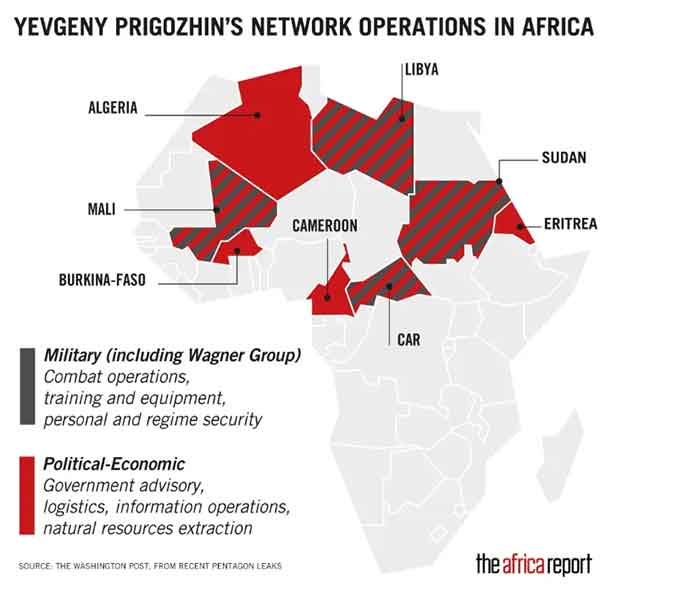
Likewise, before the Belt and Road Initiative, African states had no alternative but to go to the IMF and World Bank and impose austerity, even though it trapped their people in debt and misery. Now there may be better deals to be found. Or at least, that thing capitalists supposedly love – a fair competition. Take a look at the visual capitalist from EIGHT years ago:
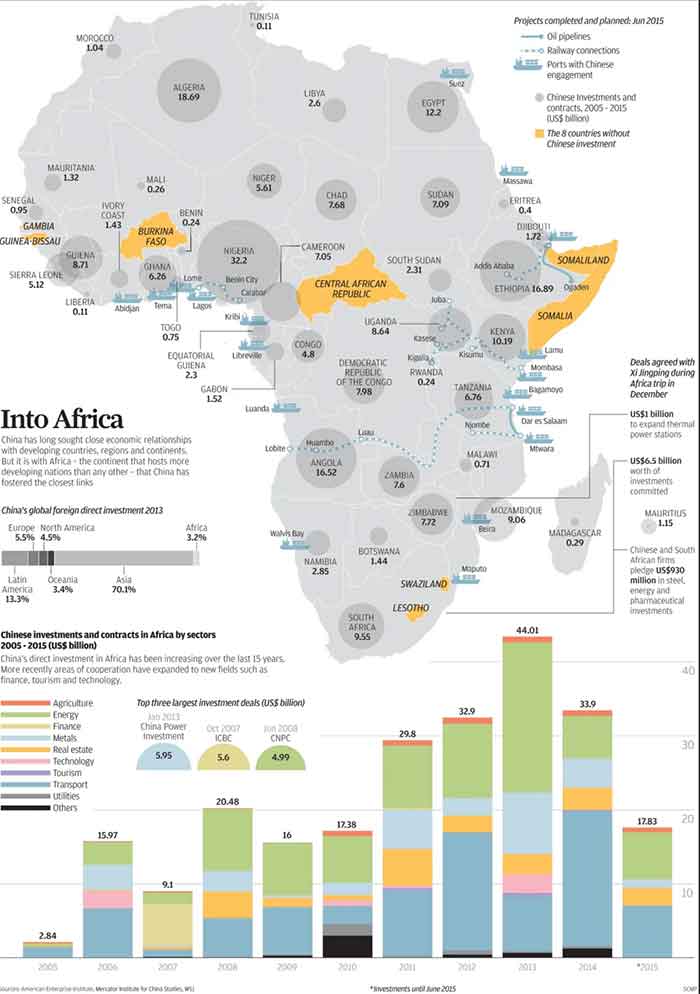
So, there are big stakes, and a wider conflict over the future of Africa, at work in this coup.
Justin Podur is the author of Haiti’s New Dictatorship (Pluto Press 2012). He has contributed chapters to Empire’s Ally: Canada and the War in Afghanistan (University of Toronto Press 2013) and Real Utopia (AK Press 2008). He is an Associate Professor at York University’s Faculty of Environmental Studies.

